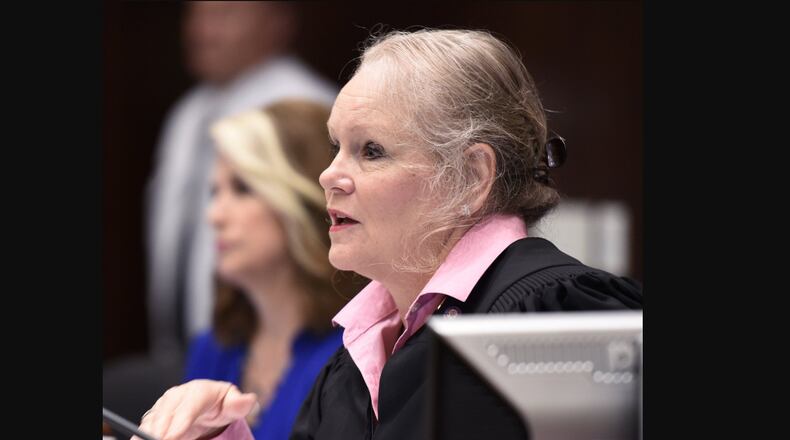Campbell was one of the first judges to create a municipal court mental health docket in the state of Ohio.
She plans to devote more time to advocacy and educational work in that space.
“In addition to my judicial duties, I serve on the Butler County Mental Health and Addiction Services Board of Directors, as a member and past President of the NAMI Ohio Board of Directors, and member and Immediate Past President of the NAMI National Board of Directors,” Campbell said in the letter. “I previously served on the Ohio Suicide Prevention Foundation and the NAMI Butler County Board of Directors. As a result of my experience as a Specialized Docket Judge and my work with NAMI at the local, state and national level and other organizations I am going to devote more time to expanding my advocacy and educational work in the mental health/substance abuse space on a national and international level.”
Campbell said she intends to remain an active member of the Fairfield community. She thanked city leaders and the court staff for what she called an “incredible 25-year journey.”
About a year after she became Fairfield’s judge, the murder case of Sophal Prom, a Vietnam native eventually convicted in Butler County Common Pleas Court of killing a co-worker in 2000, came before Campbell. That same week, a flyer on a program about therapeutic jurisprudence came across her desk. That serendipitous moment started her judicial mission in helping those who commit crimes because of their mental illness.
That wasn’t Prom’s first time facing a judge, Campbell said in a Journal-News interview in 2022. Prom “had clearly been traumatized by her experience in Vietnam” and was found not guilty by reason of insanity years earlier for aggravated menacing, a first-degree misdemeanor, in Hamilton Municipal Court.
“When she was charged with this homicide, I thought, ‘There’s something wrong in this picture that we have someone that’s been in the justice system before, but no one kept tabs on her. No one made sure she got the treatment she needed,’” Campbell said in the 2022 interview. “No one made sure that she wasn’t acting out on violent tendencies.”
Campbell did her research, visiting other mental health courts out of state and then assembled area stakeholders from the sheriff’s office and police department to service providers and the Butler County NAMI to figure out how to help those who are mentally ill that commit crimes.
“We borrowed from other courts across the country because, at the time, there weren’t any in Ohio. We had a SAMI (Substance Abuse Mental Illness) Court up in (Butler County) Common Pleas, but it was not quite the same,” she said.
By the end of 2000, the Treatment Alternative Court, or TAC, was created, and she and her staff adjusted the program as they went along.
“I believe with every fiber of my being that we need to have a mental health court docket in every jurisdiction across the country,” Campbell said in the 2022 interview. “Our prisons and our jails have become the largest mental health facility. Being mentally ill should not be criminalized, and that’s not to say that people with a mental health diagnosis can’t be criminals. I’m not saying that. But for those people whose criminal acts are a proximate and direct result of their mental illness, they’re not criminals, and they should not be treated in the same way as criminals. This is an alternate way of doing it, and quite frankly get them out of the system and get them from being frequent flyers.”
Staff Writer Michael D. Pitman contributed to this report.
About the Author

